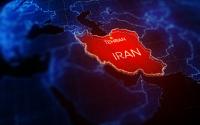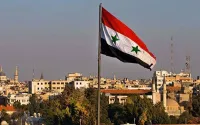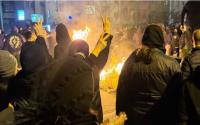3 October 2008The Guardian
The unfathomably brutal civil war devastating the eastern Congo, which is now reaching yet another peak of savagery, is not really about Congo. It is the continuation of the civil war and genocide that shattered neighbouring Rwanda in the early 1990s.
This war should be fought inside Rwanda. Pillage, mass murder, systematic rape, forced recruitment of boys as soldiers and girls as sex slaves – it should all be happening in Rwanda. The reason it isn't is that Paul Kagame, the president of Rwanda, has managed to build a security-oriented state that allows Rwandans to live in peace.
Many outsiders find the Congo war, with its baffling array of factions and staggering human toll – 3 or 4 million deaths over the last decade – almost impossible to understand. But understanding it becomes much easier when it is placed in its Rwandan context.
Over a 100-day period in mid-1994, murderers loyal to the Hutu-dominated government of Rwanda slaughtered about 1 million of their Tutsi neighbours. After Kagame's rebel movement overthrew that government, the killers fled into a safe zone created by France, which was the genocidal regime's close ally. France then arranged for the defeated army and its mass of civilian accomplices – more than a million people – to cross into eastern Congo, along with their artillery pieces, helicopters and other heavy weaponry.
Over the next few years, gangs of genocidaires crossed back repeatedly into Rwanda, waging a brutal insurgency aimed at retaking power so they could complete the genocide. The Rwandan army, led by Kagame, ruthlessly crushed this insurgency. Rwandan forces then invaded Congo twice, killing many genocidaires and overthrowing Mobutu Sese Seko, the Congolese president and monster who had embraced their cause.
But the genocidal force, now called the Forces Democratiques de Liberation du Rwanda, or FDLR, was not destroyed. Unable to push into Rwanda and kill Tutsi there, it decided to wage war in eastern Congo. Many Tutsi also live there, and they are the victims of a new genocide in the making.
Not surprisingly, this effort to wipe out Congolese Tutsi has provoked a response. A former general in the Congolese army who is of Tutsi descent, Laurent Nkunda, has raised an army to fight the genocidaires and try to prevent the extermination of his people. This conflict is at the heart of what is happening in the long-suffering Congolese provinces of North and South Kivu.
Nkunda's army has itself been accused of atrocities, and given the record of rampaging warlords in eastern Congo, that accusation is almost certainly true. More intriguing is the charge that Nkunda is receiving secret support from Kagame and his Tutsi-led government in Rwanda. Kagame denies this, but when he sent troops into Congo in 1996 he also denied he was doing it, only to confess after victory a couple of years later.
There are several good reasons why Kagame's government would want to help Nkunda. First, Nkunda is trying to stop the slaughter of Kagame's ethnic Tutsi cousins in Congo. Second, his troops are killing fighters whose ultimate aim is to invade Rwanda and wipe out the Tutsi population there. Third, a victory by Nkunda might allow him to establish a buffer zone inside Congo that would make a genocidaire invasion of Rwanda more difficult.
Another reason cannot be ignored. Eastern Congo is one of the most resource-rich regions in the world. For more than a century, kings, presidents, gangsters, warlords, business tycoons and others have understood that control of this region brings the prospect of great wealth. That too is one of the factors fuelling this war. If there were no gold or diamonds in eastern Congo, or if companies like Microsoft and Hitachi were not so desperate for the "grey gold" known as coltan, a key component in cell phones and other electronic devices that is plentiful in this region, controlling it would not be so appealing.
Under Kagame's authoritarian rule, Rwanda has become one of the most promising countries in Africa. All it would take to destroy the progress Rwanda has made over the last decade would be a handful of successful cross-border attacks by genocidaires. Kagame knows this, and he is not the sort of person to allow the niceties of international law to prevent him from aggressively defending Rwanda's security. Supporting a friendly warlord in Congo might be the best way for him to do that. If that warlord establishes control over a territory full of riches, so much the better for them both.
One intriguing question remains: Would Nkunda's capture of eastern Congo and its main town, Goma, bring a measure of peace to the region? If so, regardless of what else it would mean, it would be a godsend.






